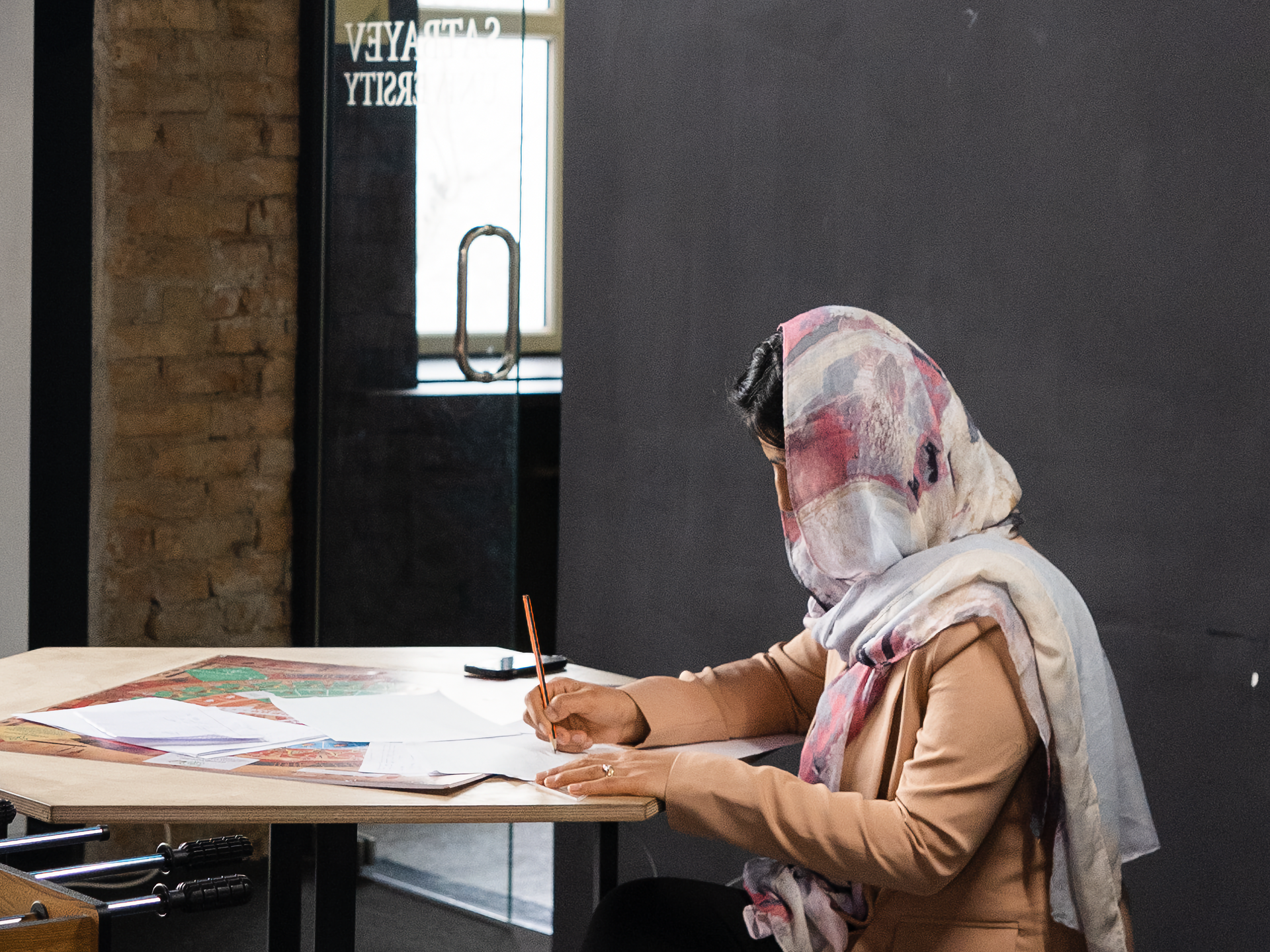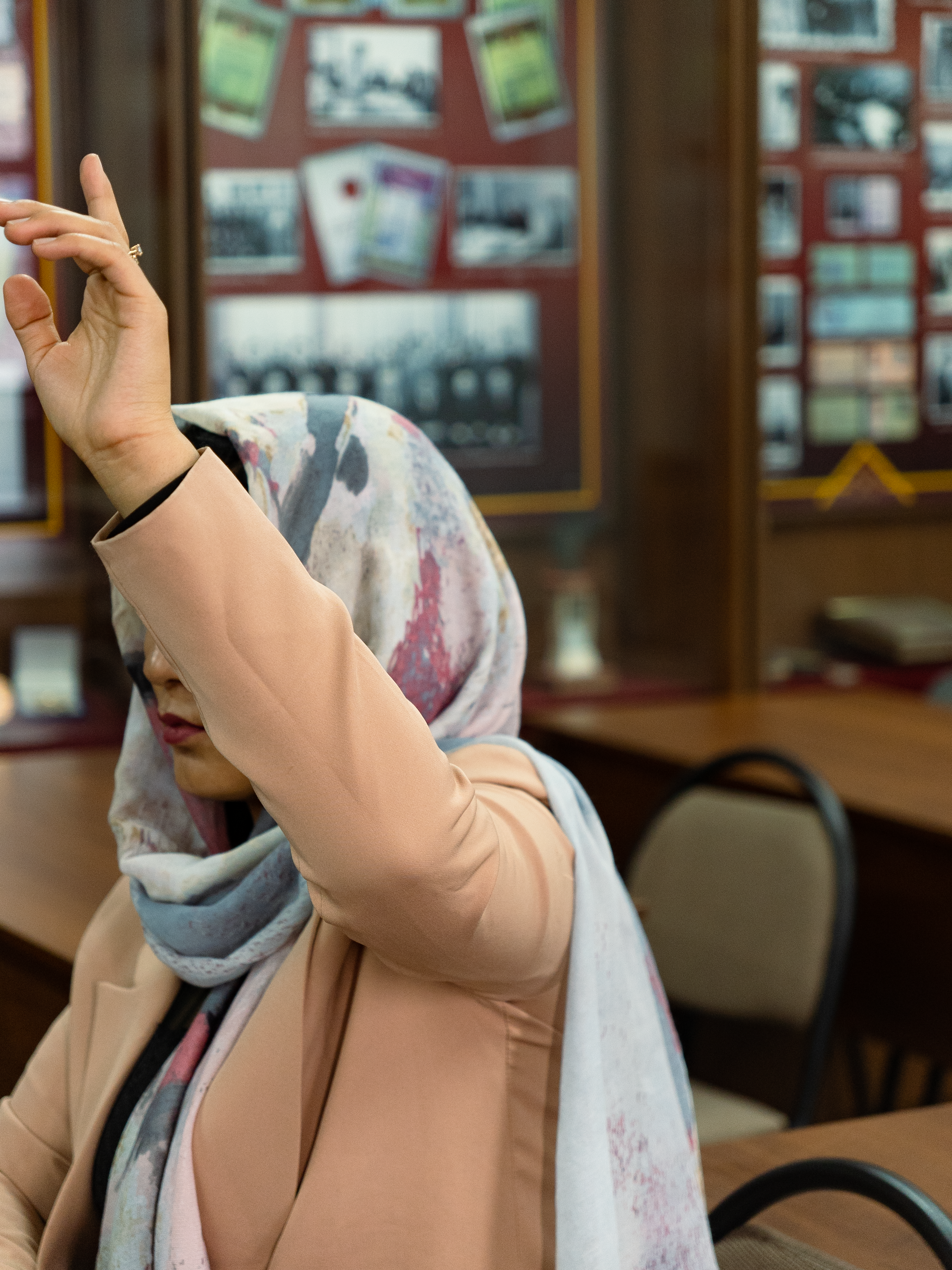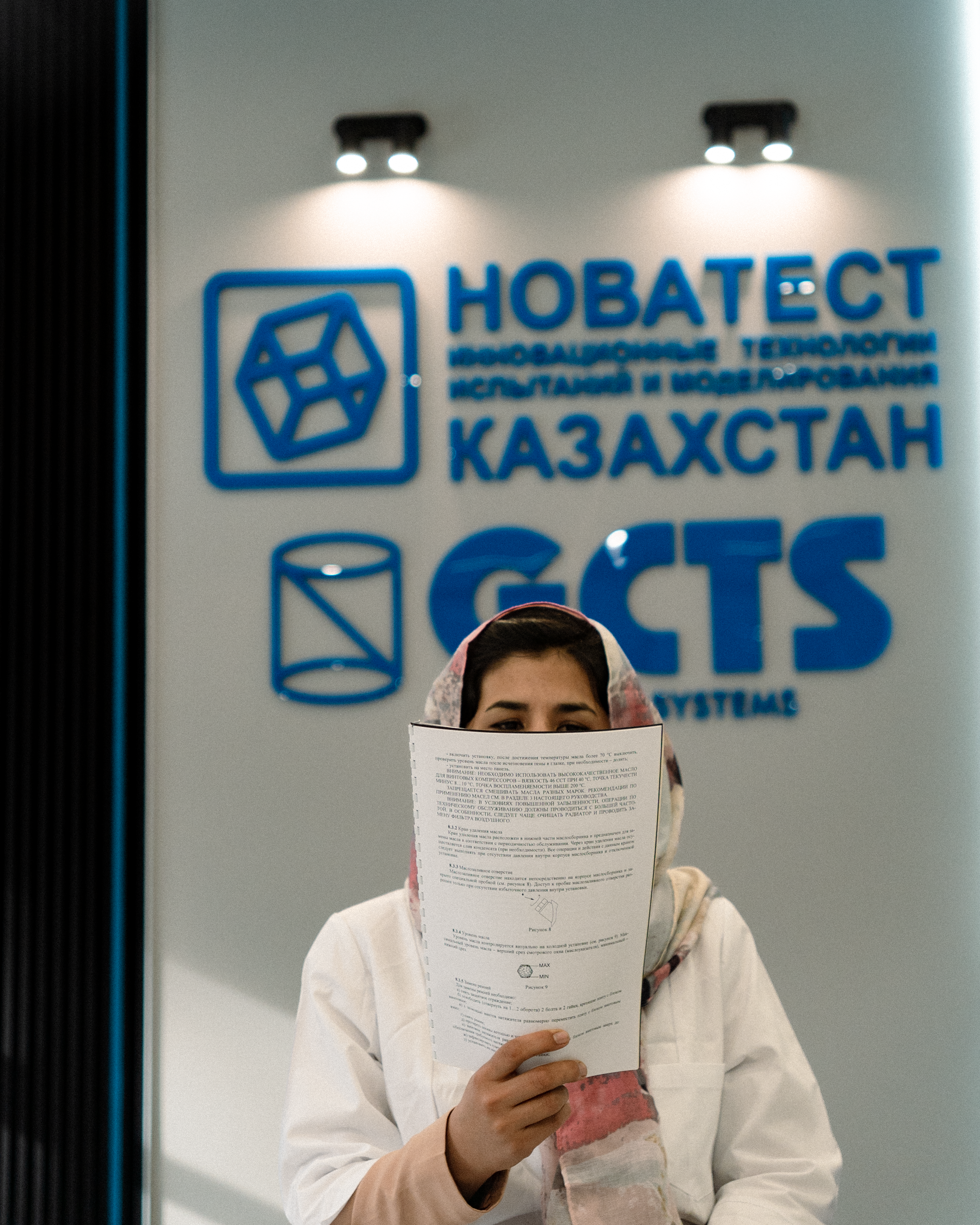Afghan women in science: I am Shahnaz
February 7, 2024

Shahnaz developed her passion for education in seventh grade when she began tutoring in the Holy Quran and then expanded to other school subjects. In ninth grade, she started working in sewing and tailoring to cover the costs of school, English, and computer courses.
“As the oldest child in my family, I always felt a responsibility to take on more and strive for more. I even used the money I earned to pay for my siblings’ education. Eventually, I started contributing to household expenses because I felt it was my duty as an elder. These were just some of the ways I tried to support my family,”Shahnaz recalls.

Shahnaz is one of the Afghan students studying at Satbayev University in Almaty, Kazakhstan. She won her scholarship as part of a cross-border initiative to empower Afghan women through education and training in Central Asia, funded by the European Union (EU).
Shahnaz was honest when asked about her opinion on geology and mining. Initially, she showed no interest in this field, which is stereotypically viewed by society as a men-dominated industry. The prevailing opinion is that only men can do such physically demanding jobs.
In Kazakhstan, too, the idea that certain professions in geology and mining are taboo for women was widespread until 2021, when the ban on 229 professions that were previously off-limits to women was lifted. This change has given women the freedom to pursue their dreams in all areas of life, not just in terms of financial independence.
“However, I have to admit that I was wrong. During my stay in Kazakhstan, I experienced various cultural shocks that sparked my interest in this field. My fascination with the subject grew with each subsequent semester. Seeing women running mining companies made me hope that I, too, could one day hold such a high-ranking position in my own country,”says Shahnaz.
Looking up to the greatest to see the future
Shahnaz sees Marie Tharp as a role model in geology and mining. Marie was a pioneering geologist and oceanographic cartographer who revolutionized the geosciences by mapping the seabed. Florence Bascom is another notable figure who contributed significantly to understanding crystallography and petrography. She was the first woman to receive a doctorate from Johns Hopkins University. These women have left an indelible mark on geology and are a great source of inspiration for budding scientists, regardless of gender.
Shahnaz has a crystal-clear vision for her career after graduation, which aligns perfectly with her goals and priorities. Moreover, as a mountainous country, Afghanistan is blessed with abundant mineral resources. With the help of foreign support, it is possible to explore these natural treasures and create mining platforms that could bring significant economic benefits to the country.

“I hope for a better future for Afghanistan, even though the situation is uncertain. I intend to return home and use the knowledge and skills I acquired during my studies to contribute to the growth and development of my country. Specifically, I am aiming for a position that will allow me to lead the introduction of new technologies in the mining industry,”says Shahnaz.
Finally, Shahnaz has some meaningful advice for women and girls in Afghanistan who face obstacles in pursuing their scientific careers. She advises seeking out organizations and individuals that provide support and resources both inside and outside the country. There are international networks that can provide counseling, mentorship, and educational opportunities to overcome these challenges. It is also important to advocate for better access to education and equal opportunities for women in science. While the road ahead may be challenging, determination and resilience can lead to significant contributions and progress in the scientific community.

“As an Afghan girl, I may feel shattered and broken inside, but I pick myself up every time and come back stronger. I have stumbled many times on this journey and made countless sacrifices, but I have never given up. Every day, I strive to become the best possible version of myself. From a young age, I learned to fight for my rights, and that fight continues to this day. But now my goal is even bigger. I am not only fighting for myself but for every Afghan girl who is denied education and basic rights,”concludes Shahnaz.
For women in science
On this International Day of Women and Girls in Science, we take a moment to celebrate the achievements of women who have made great accomplishments in the field of science. We also acknowledge the aspirations of young women, especially girls from Afghanistan, who are doing their best to contribute to the world's sustainable development through their scientific pursuits. Today, we recognize the incredible impact that women continue to have in science and encourage more women and girls to pursue their dreams in this field.
***
In 2019, a collaborative project between the EU and UNDP was launched to offer educational opportunities to 50 Afghan women in Kazakhstan and Uzbekistan. Thanks to additional funding from the EU in 2021, the project expanded to the Kyrgyz Republic, and 105 more Afghan women were awarded scholarships. With UNDP's efforts and the EU's funding, 155 Afghan women will obtain academic and professional degrees in Central Asia by 2027.
The partnership between the EU and UNDP carries immense significance for Kazakhstan and the Central Asian region at large. By combining the EU's resources, technical expertise, and commitment to promoting stability and prosperity alongside the UNDP's deep understanding of local dynamics and development challenges, this collaboration has become a catalyst for positive change. Their joint efforts address critical issues such as sustainable economic development, inclusive governance, environmental sustainability, and social resilience in Kazakhstan and Central Asia. This partnership underscores the importance of regional cooperation and international solidarity in advancing the collective goal of achieving sustainable development and improving people's lives in the region.
This publication was funded by the European Union. Its contents are the sole responsibility of UNDP and do not necessarily reflect the views of the European Union.

 Locations
Locations






